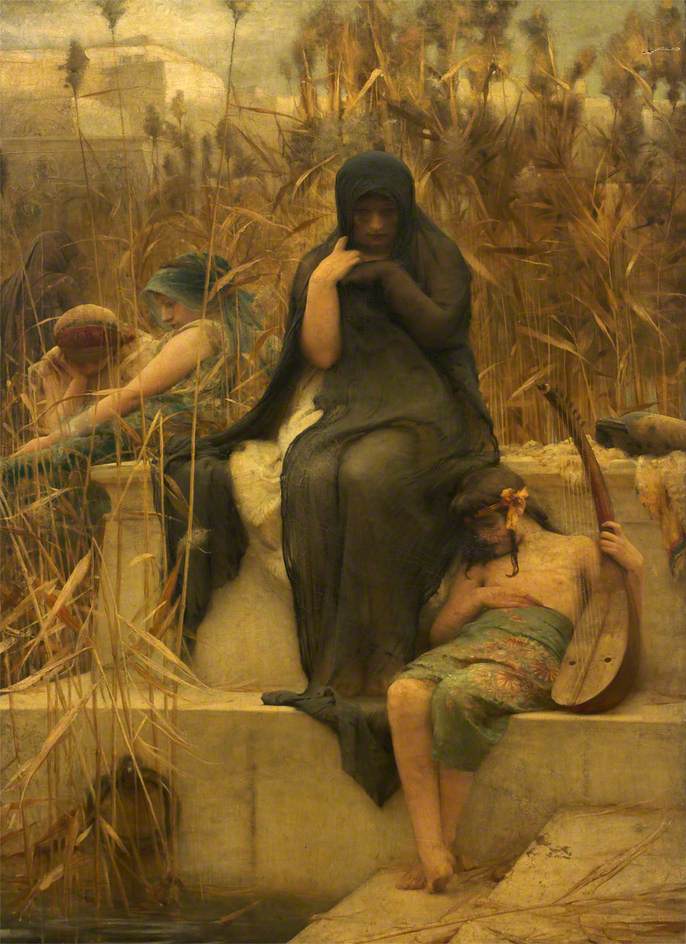
* * * *

I just reviewed some “posts to be done” from a few months ago – and ran across this. As noted in the first ‘graf, it’s from the first week of last May. (I was about to fly to Israel for three weeks.) But I didn’t publish it then, so I’ll do that now. Accordingly, here’s that first pre-look at my planned Israel trip, and Psalm 137, “the middle of the Bible.”
* * * *
As told in “On to Jerusalem,” this upcoming May 10th I’m flying to Jerusalem for a two-week pilgrimage. (As part of a local church group venture.) To that end, I’ve been listening to some lectures-on-CD, The World of Biblical Israel | The Great Courses Plus.
On a related note, I connected to a Jerusalem Post article, If I Forget Thee, Oh Jerusalem:
There is an almost natural magnetic draw to Jerusalem that stirs within us a special emotion. For millions of people around the world the heart of ancient Jerusalem, Yerushalayim, symbolizes spirituality and mysticism, a place of prayer and miracles, the centre of the world and a holy portal to God.
Note the “spirituality and mysticism” part, which mirrors one frequent theme of this blog. The point is: That title in the Jerusalem Post article refers to Psalm 137:5-6, which reads “If I forget thee, O Jerusalem, let my right hand forget her cunning. If I do not remember thee, let my tongue cleave to the roof of my mouth; if I prefer not Jerusalem above my chief joy.” (That’s from the King James Version. You know, the one God uses?)
Which just happened to tie in with the Biblical Israel course, as described below.
See for example Psalm 137 – Wikipedia, describing “Nebuchadnezzar II‘s successful siege of Jerusalem in 597 BC.” One result? The people of Judah ended up “deported to Babylonia, where they were held captive until some time after the Fall of Babylon (539 BC):”
In English it [Psalm 137] is generally known as “By the rivers of Babylon,” which is how its first words are translated in the King James Version… The psalm is a communal lament about being in exile after the Babylonian captivity, and yearning for Jerusalem. The psalm is a regular part of Jewish, Eastern Orthodox, Catholic, Anglican and Protestant liturgies. It has been set to music often, and was paraphrased in hymns.
So anyway, Professor Chapman focused first on Psalm 137 as the story of how that Hebrew Remnant – those Exiles – created the final version of what we know as the Old Testament.
That is, the Old Testament – as we know it today – did not exist before the year 586 B.C. Again, that was the year most Judeans were taken from their homeland – after the horrors of the Babylonian conquest – and suffered a “death march,” 800 miles to Babylon. “After this defeat, they compiled, edited and shaped” their collected national stories into a virtual library.

And again, according to Professor Chapman, Psalm 137 (at right) constitutes both the mid-point – the very middle – of years of Ancient Jewish history and the very middle of the Bible itself.
In turn Psalm 137 was written at just the time when the books of the original Hebrew Bible – the Old Testament – were collected, edited and redacted. And it all came to be because of the Exile, that “national disgrace.”
In other words, before the calamity of the Exile, many books (in the form of scrolls) existed, but “here is where they were first collected into what we know as the Old Testament today.” That idea was mirrored in the Babylon captivity link at Psalm 137:
This period saw … the emergence of the central role of the Torah in Jewish life. According to many historical-critical scholars, the Torah was redacted during this time, and began to be regarded as the authoritative text for Jews. This period saw their transformation into an ethno-religious group who could survive without a central Temple.
* * * *
Which is about as far as I got: The story of how the Old Testament as we known it finally came into being. And it might never have occurred but for this humiliating “national disgrace” for the Children of Israel. (On that note see The Blessings of Trials – Crosswalk.com.)
But in the meantime we’ve moved on to the Season of Advent. See 2016’s On Andrew – “First Apostle” – and Advent, and On Advent – 2015, which described the Season of Advent:
Advent is “a time of expectant waiting and preparation for the celebration of the Nativity of Jesus at Christmas.” The theme of Bible readings is to prepare for the Second Coming while “commemorating the First Coming of Christ at Christmas.”
And it should be noted that in some of the readings for the Season of Advent, Jesus tells the Parable of the Budding Fig Tree. (Not to be confused with the barren fig tree):
“Look at the fig tree and all the trees; as soon as they sprout leaves you can see for yourselves and know that summer is already near. So also, when you see these things taking place, you know that the kingdom of God is near…”
In doing so Jesus quoted Isaiah – twice – as well as the Book of Daniel. See also Jesus and messianic prophecy. The main point Jesus was trying to make? “Beware, keep alert; for you do not know when the time will come.” And also, “What I say to you I say to all: Keep awake.”
Which is pretty much what the Season of Advent is all about…
And that “High Holy Season” always starts with the Feast of St. Andrew – “the First Apostle.” That posts and others cited in it noted that while Andrew was “one of the four disciples closest to Jesus,” he seems to be the least known about. Which is ironic because Andrew was one of Jesus’ the first followers. In fact he “followed Jesus before St. Peter and the others,” and so he is “called the Protoklete or ‘First Called’ apostle.”
* * * *
* * * *
The upper image is courtesy of Psalm 137 – Wikipedia. The caption: “‘By the Waters of Babylon,’ painting by Arthur Hacker, c. 1888.”
The lower image is courtesy of St. Andrew Saltire Cross – Image Results. Earlier I had an image from ncregister.com/blog/st.-andrew-apostle-11-things-to-know and share, which is “now defunct.” But it included the full text of St. Andrew’s words before he died, showing “a very profound Christian spirituality. [He] does not view the Cross as an instrument of torture but rather as the incomparable means for perfect configuration to the Redeemer, to the grain of wheat that fell into the earth. Here we have a very important lesson to learn: Our own crosses acquire value if we consider them and accept them as a part of the Cross of Christ…” See also Andrew the Apostle – Wikipedia, or St. Andrew’s Cross – Saltire – Symbolikon.
About that “saltire” see St Andrew … 5 facts you might have known:
Legend has it that he [Andrew] asked to be tied to an X-shaped cross because he did not feel worthy of dying on the same shape of cross as Jesus. The shape has been represented by the white cross on the Scottish flag, the Saltire, since at least 1385.
As to the Feast of St. Andrew beginning the new church year, see Anticipating Christmas, Beginning with Saint Andrew. Or see St. Andrew, from the Satucket website:
Just as Andrew was the first of the Apostles, so his feast is taken in the West to be the beginning of the Church Year… The First Sunday of Advent is defined to be the Sunday on or nearest his feast (although it could equivalently be defined as the fourth Sunday before Christmas Day).



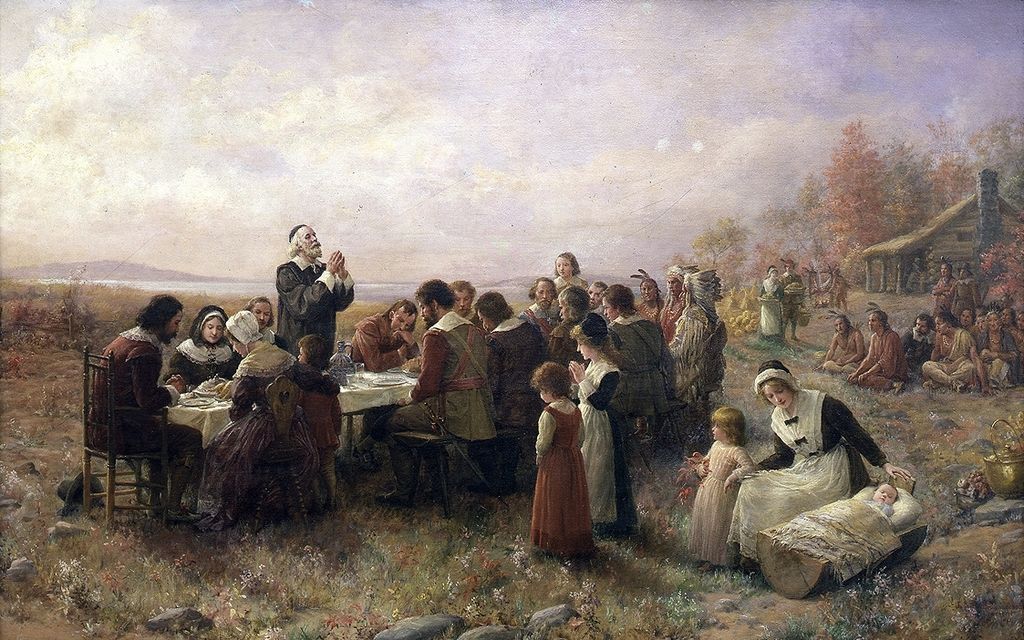

 You can get a more complete story from prior posts like – from 2018 –
You can get a more complete story from prior posts like – from 2018 –  Another idea was to build bonfires. Literally
Another idea was to build bonfires. Literally 
 Which would have brought us back to the topic of such pilgrimages, if this James had been “the Greater.” As for the confusion, see
Which would have brought us back to the topic of such pilgrimages, if this James had been “the Greater.” As for the confusion, see 

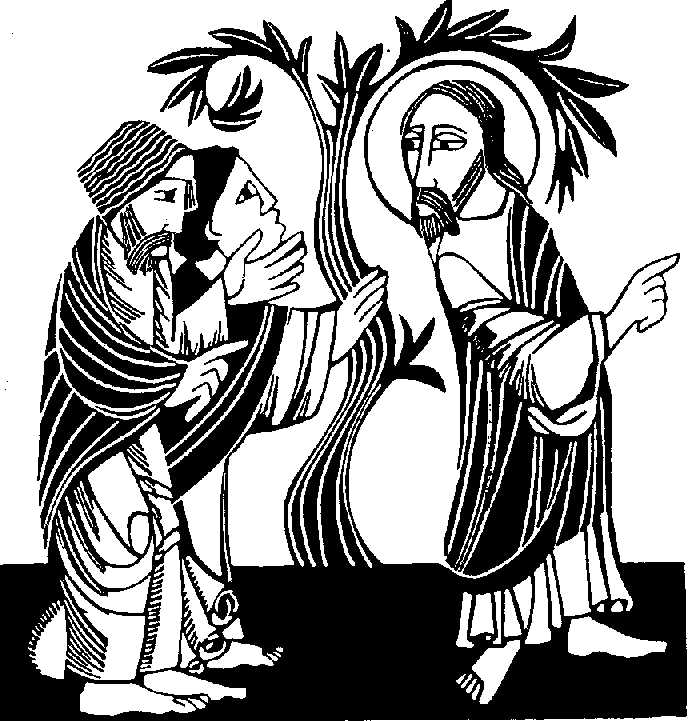 Saturday August 24 is the
Saturday August 24 is the  Some further notes: The dogs were set to
Some further notes: The dogs were set to




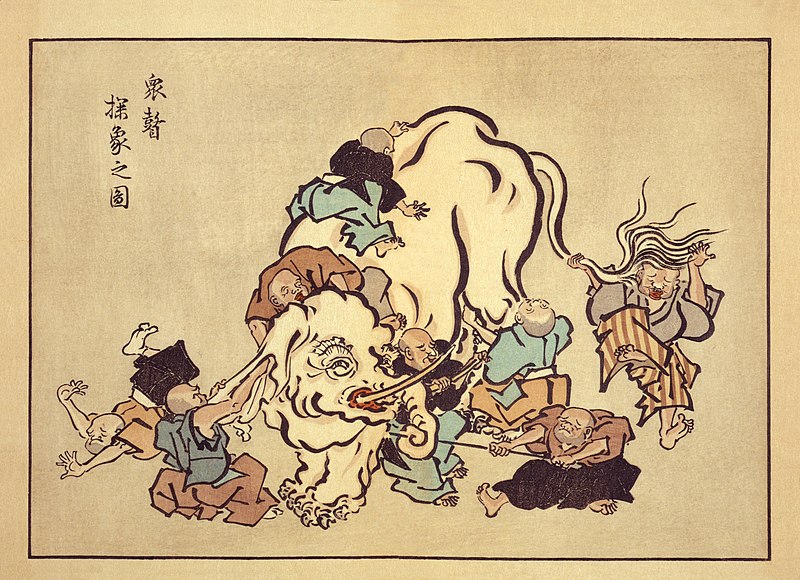 For more on this James see
For more on this James see 

 Next Monday, July 22, is the feast day for
Next Monday, July 22, is the feast day for  Then too there’s
Then too there’s 

 Now I’m back – and don’t have to worry about any more traveling. That is, not until the end of August, when I fly to Lisbon to hike the Portuguese Camino. (From Porto to
Now I’m back – and don’t have to worry about any more traveling. That is, not until the end of August, when I fly to Lisbon to hike the Portuguese Camino. (From Porto to 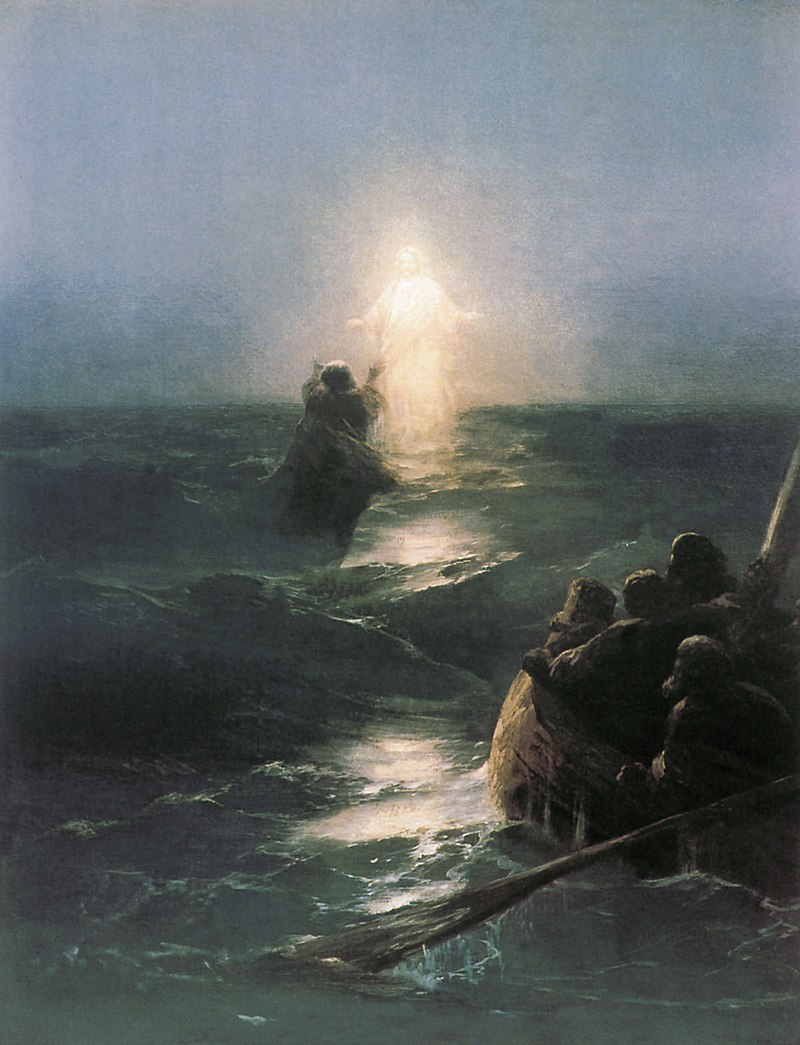 Which to me illustrates the difference between a real Christian – like Peter – perfectly willing to fall on his face in an effort to emulate Jesus and His path, and the other disciples. Those who stayed safe and sound in the boat, and represent the “many who are called,” but end up turning down Jesus’ invitation to both “
Which to me illustrates the difference between a real Christian – like Peter – perfectly willing to fall on his face in an effort to emulate Jesus and His path, and the other disciples. Those who stayed safe and sound in the boat, and represent the “many who are called,” but end up turning down Jesus’ invitation to both “
